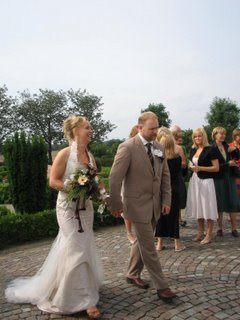Kommentar til udtalelser i Politiken 10. august 2006
”Vi har ikke lavet klassedannelse, men blot et morgenmøde i grupperne hver morgen”
Ruth Hagen, skoleleder på Vesterbro Ny Skole
Interessant er det, at man for at afholde såkaldt ”danske forældre” fra at flytte deres børn til skoler med en mindre procentdel tosprogede elever, vælger segregering som løsningsmodel. Om noget cementerer det skellet mellem de ”rigtige” og de ”forkerte” danskere. Man vælger altså at imødekomme en frygt hos disse ”danske” forældre – en frygt, der som oftest bygger på det forskruede og problematiske billede, medier og politikere tegner af minoriteter indenfor landets grænser. Et fornuftigt skridt i skole-sagen ville være at indkalde de ”danske” forældre til integrationsmøde og lære dem, hvordan situationen faktisk forholder sig i dette dagens Danmark. Hvordan skal denne opdeling af skolens morgenstund modvirke parallelsamfundsdannelse, der til daglig bekymrer den danske befolkning? Hvordan skal den lære forældre, der er indvandrede for år tilbage, at deres børn er lige dele danske og lige dele ”anden etnisk herkomst”?
Haarders udtalelser om, at ”ændre nogle centrale formuleringer” i skolens skriftlige forslag, så opdelingen kan ”erklæres lovlig” signalerer en fuldstændig ligegyldig omgang med generelle principper om lighed og mod diskrimination. At Haarder kan forestille sig at modificere ordlyden af et forskelsbehandlende forslag, så det kan legitimeres i juridisk forstand, er en indrømmelse af dets særdeles problematiske indhold. Denne praksis, der finder sted i alle hjørner af Danmarks sociale og offentlige sfære, illustrerer den fordomsfuldhed og i dens ekstreme form racisme, der påtales af internationale organisationer særligt i denne tid. Hvis det, der bliver sagt, kan anklages for at være diskriminerende eller racistisk, så kalder vi det bare noget andet – hensyntagen til borgerne, beskyttelse af ”danske” værdier eller nytænkning indenfor integrationsinitiativer (!).
I øvrigt fratager forslaget de ”danske” børn muligheden for at danne sig indtryk af og have oplevelser med de danskere, der ikke nødvendigvis ligner dem selv, og det er derfor også en begrænsning af deres frihed til at lære deres samfund at kende i en fordomsfri atmosfære. Danmark er ikke kun befolket af ”rigtige” danskere med familiære rødder solidt plantet i den historiske danske muld, men også de (tilsyneladende neutralt) benævnte nydanskere, der i bedste fald bliver portrætteret som ”forkerte” danskere, i værste fald som udlændinge, der slet ikke hører til i Danmark. Den mangfoldige struktur i den danske befolkning ændrer sig ikke, inden disse børn bliver voksne og bevidste deltagere i samfundet. Man kunne da håbe og ønske sig, at de blev givet en realistisk chance for selv at danne sig et indtryk af, hvilke perspektiver der er i mangfoldigheden – både de problematiske og de mulighedsfyldte. Oplyste borgere forholder sig til et realistisk – om end altid subjektivt – billede af det samfund, de lever i, og denne skoles intention om en opdeling ”i det små” så at sige, altså en opdeling, der tilsyneladende ikke har videre konsekvenser, er præget af en hegemonisk kunstighed. Det er en opdeling, der på ingen måde præsenterer disse børn for et realistisk billede af dagens og fremtidens Danmark, og den er endnu et forsøg på at manifestere de ”rigtige” danskeres kulturelle og politiske magt over de danskere, der af flertallet betragtes som hørende til andetsteds.


